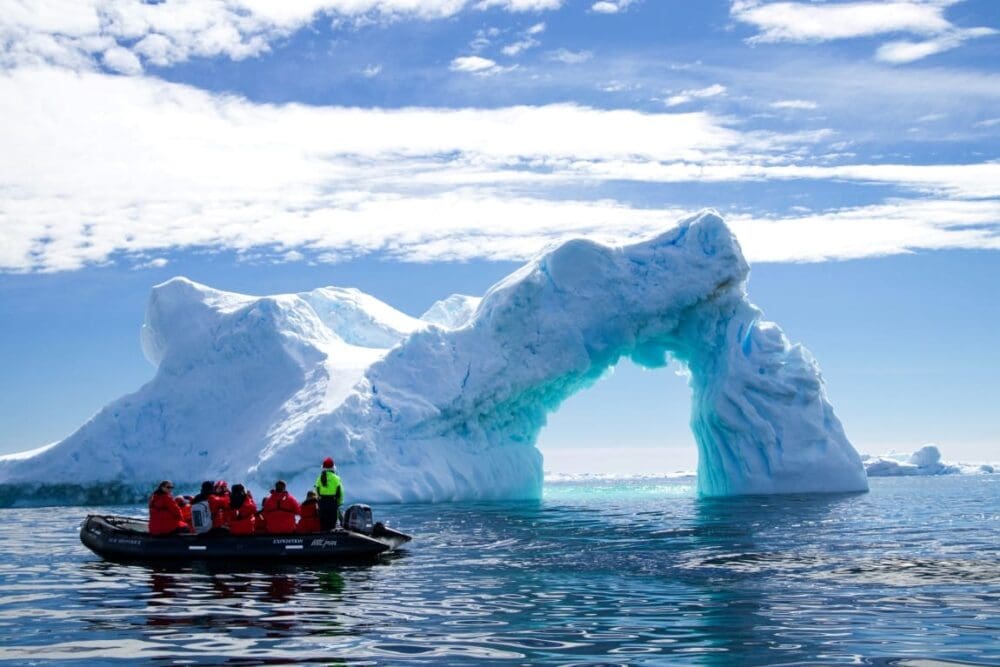By British Antarctic Survey (BAS)
Warm water that seeps underneath can melt ice in way not yet included in models.
A new and worrying way that large ice sheets can melt has been characterised by scientists for the first time. The research focuses on how relatively warm seawater can lap at the underside of ground-based ice, which can accelerate the movement of the ice into the ocean.
This process is currently not included in models that predict sea level rise, so the new results could offer a more accurate picture of how the world will change with global warming and how much coastal areas will need to adapt.
Carried out by scientists at the British Antarctic Survey (BAS), the findings are published in the journal Nature Geoscience.
“We have identified the possibility of a new tipping-point in Antarctic ice sheet melting,” says Alex Bradley, an ice dynamics researcher at BAS and lead author of the new paper. “This means our projections of sea level rise might be significant underestimates.”
The research focuses on a region beneath an ice sheet called the grounding zone, which is where the ground-based ice meets the sea. Over time, such land-based ice moves into the surrounding ocean and eventually melts – a process that takes place around the coast of Antarctica and Greenland and is a major contributor to sea level rise.
The new study models how seawater can seep between the land and the ice sheet that rests on it, and how this affects the localised melting of the ice, lubricating the bed and influencing the speed at which it could slide towards the sea. And it looks at how this process accelerates with warming water.
“Ice sheets are very sensitive to melting in their grounding zones. We find that grounding zone melting displays a ‘tipping point like’ behaviour, where a very small change in ocean temperature can cause a very big increase in grounding zone melting, which would lead to a very big change in flow of the ice above it,” Bradley says.
This happens because warm water melting in the grounding zone of the ice sheet opens new cavities that allow further ingress of warm water, which causes more melting and bigger cavities, and so on. The tipping point comes because a small increase in the water temperature can have a very big impact on the amount of melting.
Ice melt in this way, which is currently not accounted for in the models used by the Intergovernmental Panel on Climate Change (IPCC) and others, could explain why ice sheets in Antarctica and Greenland seem to be shrinking faster than expected, Bradley says. Including the results of the new work in such models could give more reliable estimates.
“This is missing physics, which isn’t in our ice sheet models. They don’t have the ability to simulate melting beneath grounded ice, which we think is happening. We’re working on putting that into our models now,” Bradley adds.
More information: Alexander T. Bradley, Ian J. Hewitt, ‘Tipping point in ice-sheet grounding-zone melting due to ocean water intrusion’, Nature Geoscience (2024); DOI: 10.1038/s41561-024-01465-7. BAS Press Release. Featured image credit: Dylan Shaw | Unsplash




